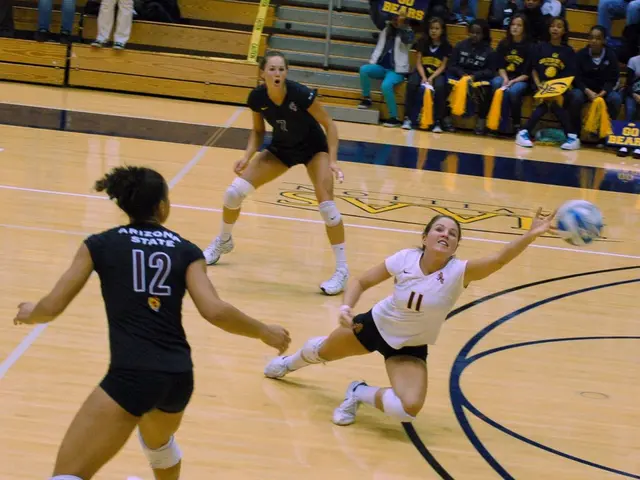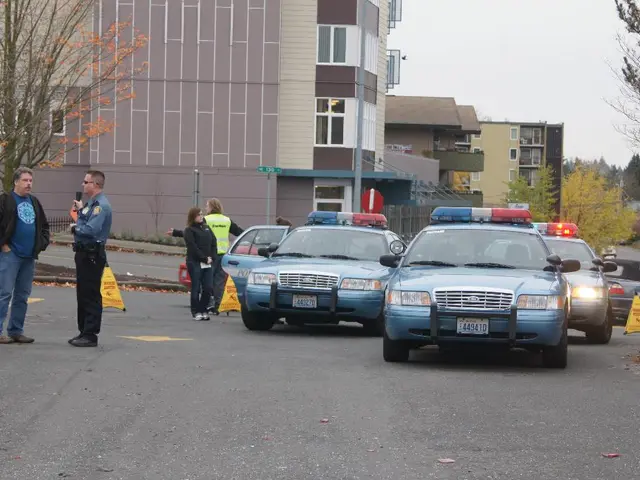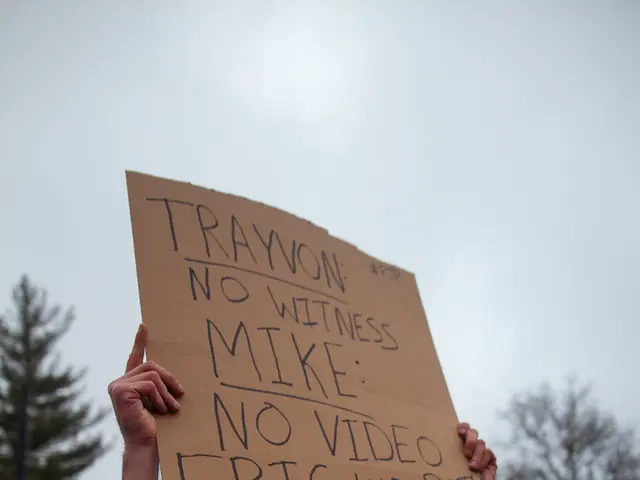Court set to review cases of two college students, one currently imprisoned, the other recently freed
Topic in the Spotlight: The Fight for College Students' Rights
Prepare yourself for a high-stakes court battle as a three-judge panel from the 2nd Circuit Court of Appeals, based in the Big Apple, prepares to hear cases about detained international students from Tufts University and Columbia University. The U.S. Justice Department has appealed decisions made by federal judges in Vermont in the cases of 30-year-old doctoral candidate Rumeysa Ozturk and 34-year-old Palestinian student Mohsen Mahdawi, alleging similar legal questions in both cases.
The Justice Department argues that an immigration court in Louisiana has jurisdiction over Ozturk’s case, limiting the role of federal courts in immigration matters. On the other hand, Ozturk's legal team asserts that her long detention violates her constitutional rights, including her freedom of speech and due process.
Last year, Ozturk was one of four students who wrote an op-ed in The Tufts Daily criticizing the university’s response to student activists demanding acknowledgement of the Palestinian genocide and divestment from companies with ties to Israel. In March, the Department of Homeland Security claimed, without evidence, that Ozturk supported Hamas, a U.S.-designated terrorist group, serving as grounds for her detention.
Meanwhile, Mahdawi, a legal permanent resident for a decade, led protests against Israel's war in Gaza. He was arrested by immigration officials during an interview about finalizing his U.S. citizenship. Mahdawi's case raised concerns that the government arrested him to muzzle his speech. In response, the court contended that Mahdawi had raised a "substantial claim that the government arrested him to prevent the expression of his political viewpoints."
Mahdawi's release from detention in Vermont allows him to attend graduation next month in New York, after completing his coursework at Columbia and preparing to start a master’s degree in the fall.
These cases place constitutional protections, jurisdictional authority, and potential government overreach in immigration enforcement under the microscope. It remains to be seen whether the immigration authorities overstepped by detaining students for speech-related activities and whether federal courts can review these constitutional challenges despite jurisdictional limits. As the 2nd Circuit Court of Appeals weighs the evidence, the government maintains its actions fall within the discretion of immigration enforcement.
Bonus Facts:
- In 2020, a federal judge ruled that the government must release students held for more than 90 days without a hearing if there is no evidence linking them to terrorist activities.
- Jewish and pro-Israel students on campus have also faced threats and intimidation from extremist groups, highlighting the need for protection of all student viewpoints.
- The Court of Appeals in Seattle is not involved in the cases of students from Tufts University and Columbia University.
- The government disagrees with the claims that detaining international students like Ozturk violates their constitutional rights.
- Citizenship for Mahdawi, who has been a legal permanent resident for a decade, is now on hold due to his detention.
- Seattle's general news outlets have reported on cases involving war-and-conflicts, crime-and-justice, and student activism.
- Apart from the current cases, Seattle has also seen incidents such as car-accidents and fires, which have been covered by local news.
- Ozturk's case raises questions about policy-and-legislation regarding immigration enforcement and the role of federal courts.
- The outcome of these cases may set a precedent for future immigration cases related to student rights.
- This ongoing fight for college students' rights is a significant topic in politics and draws attention from student bodies across the country.









